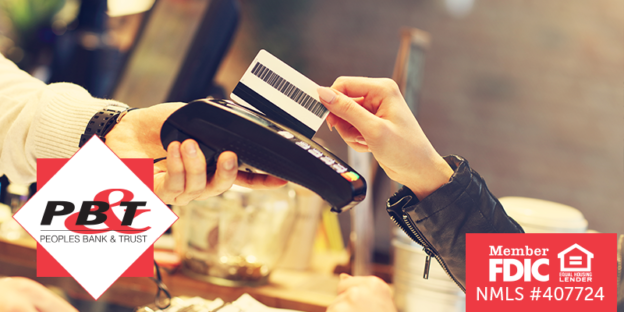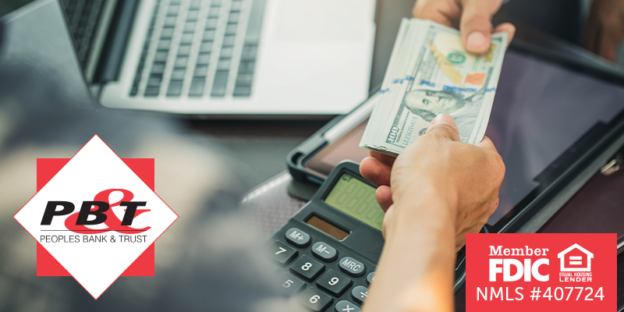Staging your home can just be another hectic task on your plate to get your house sold. Here are a few tips on how you can stage your house to sell easily and on a budget.
Curb Appeal to Make a First Impression
A good curb appeal will stand out to your buyers immediately. Good landscaping and outside projects can take time. If you’re in a rush to get your exterior ready to go, the first thing to focus on would be removing dirt from the siding, roof and gutters. A good pressure washer can clean the dirt right off, and while you’re at it, you can clean off your porch and walkways. If you have outdoor furniture, sometimes a good pressure wash can make them look refreshed and new.
Another curb appeal tip is to clean up your edging for a clean look. Doing this around any landscaping or flowerbeds will up their appearance. Once your edging is sharply complete, consider laying some additional mulch or rock to give a fuller look. Adding some florals and greenery can give color and fill in empty flower beds or pots.
Cook Up a Good-Looking Kitchen
The key to quickly staging your home on a budget and on short notice is not to take on too many projects, but to minimalize and declutter. A kitchen can look much more attractive if the small appliances are put away. The more you can start packing away for the new place and get off the counter, the better. A few small replacements you can make are replacing the rusty or dripping faucet. This can add so much to the look of your sink and make your kitchen overall look much cleaner. Changing the hardware on your cabinets can also add to a better look for your kitchen. The backsplash is huge in today’s kitchen design styles, and it can be added very easily. There are many DIY options available that you can simply peel and stick. When staging your kitchen, consider it a refreshed facelift, not a completely new look.
Functional Furniture Placement
Furniture placement is a huge factor in how buyers view the home and the overall space. You may have to remove some furniture to give a more open feel to move around. You do not always have to have furniture pushed against a wall – pull the furniture out to fill the space for a homier look. This will also make the room appear larger. Minimal accessories on your coffee table can give a clean and sleek look. A few blankets and throw pillows are always an easy addition to spruce up what you already have, just be sure they flow with the furniture and match. Adding a lamp in a darker corner to add brightness can help add to the space. If you have wall hangings up, make sure they are appropriately sized for that wall and that they are straight.
Accessorize With Accents
When it comes to accessorizing your home, the key takeaways are to depersonalize and declutter. Potential buyers want to envision themselves in your home, so depersonalizing your décor can best allow them to do that. This may entail removing family photos, certificates or awards, or personal items. There are several stores that offer cheap generic art that could fill the space and make it easy to pack away personal items. As for replacing personal items, add some neutral pots with greenery, books or even some inexpensive accents such as candles, bookends or decorative beads to fill those bare spaces. The more minimal your counters, shelves and tables can be, the more refreshed they will look to your buyer. The rule of thumb is you should decorate in threes rather than in a pair to look a little more relaxed and unsymmetrical.
Sell With the Smell
Everyone wants to walk into a good-smelling house. Oftentimes these aromas can affect the way your buyers feel and think as they walk through your home. It can be hard for us to notice what may come off as an odor in our house to someone else. Remove the dog bed or kitty litter well in advance to diminish the smell of a pet. Put your overflow of shoes away. The old plants you may have can be stored away temporarily. To overcome odors, add plugin air fresheners and diffusers to give off a gentle, yet clean scent. You can light candles to give off warmth and a homey aroma. Some scents to consider would be something smelling like a baked good or vanilla. Some sellers even go as far as making cookies before the showing for an aroma of freshly baked cookies. Through the rest of your house, you can absolutely utilize fresh flowers to fill a surface and add a nice floral scent through the space.
Some Extras to Add
1. Home Office
Adding an office is always smart to show there is room for one, especially in the world we live in with a lot of people having the option to work remotely. If you have the furniture and could set up a room for an office, it would be a great way to show diversity amongst rooms. If you do not have a full room, renovate a nook to work as a functional office and fill that space up efficiently.
2. Organizational Units for Closets
Another extra to add would be some budget-friendly storage options to tidy up closets but accent the storage you have in a more luxurious way. We all desire storage, so the key is to show it off.
3. Plush Bathrooms
Consider adding a clean shower curtain and plush towels and rugs for your bathrooms to create a spa feeling. While you are touching up your bathrooms, be sure to address any hard water stains and dirty grout.
4. Luxe Bedrooms
Lastly, make your bedrooms feel luxurious with plush pillows and clean linens. Everyone wants a comfortable bedroom they can unwind in. Give this feeling to potential buyers by tidying up yours for a simple, yet luxe look so they can envision making it their own.
What You NEED to Remove
1. Remove Your Pet
One of the big things to remove would be any pets. We like to think we all have a sweet spot for a furry friend, but when showing your home, buyers do not want to be greeted by your pet, especially if they are allergic, do not like pets or are turned off by their odor.
2. Remove Pet Items
As mentioned above, removing your pets would also include all their things such as a crate, food bowls and toys almost as if they do not reside with you. Eliminating the sense you’re a pet owner can give the impression of a clean and well-kept home. The last thing you want your potential buyers to notice is dog hair all over and a pet odor in their potential new home.
3. Remove Clutter and Personal Items
Staging your home can be the extra push you need to get your home sold. Cleaning up the clutter and the personal items can allow potential buyers to envision the space as their own. Sometimes, you can even work a deal with a buyer and get rid of some furniture, solely because it fits your space so perfectly. The great part about staging your home is that it forces you to start packing up and maybe even declutter your things before the big move.
Now that you’ve read all about the tips to stage your home, start decluttering and depersonalizing today to sell with confidence!
Peoples Bank & Trust Co.
Member FDIC
Equal Housing Lender











